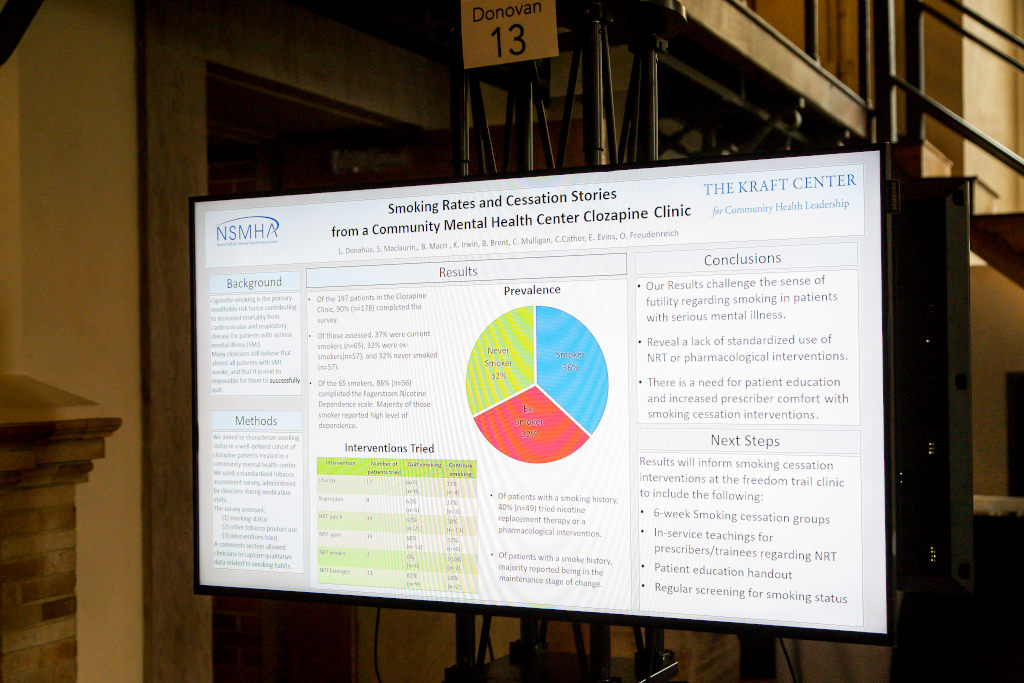COMMUNITY HEALTH TRAINING
In its first five years, The Kraft Center community health training programs were designed both to: (1) Develop a new generation of physician-leaders committed to tackling the challenge of health inequality at the policy, management, and research levels; and (2) Recruit and retain top-notch physicians and nurses in the community-based practice settings that are often the first or only point of health care for many low-and moderate-income individuals and families. We are proud of our graduates, and our collaborations with the Massachusetts League of Community Health Centers, with our academic partners, the Massachusetts General Hospital and the Brigham and Women’s Hospital, and with 27 community health centers and mental health centers in Massachusetts. In June 2017, we will have graduated 75 clinician-leaders (15 Fellows and 60 Practitioners). The vast majority remain in Community Health Centers and more than half have achieved positions of leadership. Learn more about The Kraft Center Alumni and their impactful work.
Since 2017, The Kraft Center has prioritized designing and implementing direct service programs, but continues its proud tradition of community health training. Since 2018, The Center has hosted summer interns from Health Career Connection (HCC) who have supported projects including our Community Care in Reach mobile program, Build Our Kids’ Success (BOKS) program, community engagement campaigns, and more. To see a full list of our HCC interns and examples of their work, please visit our Trainees and Staff page.
In the coming years, The Kraft Center will continue its emphasis on training a new generation of clinical and public health practitioners interested in working in medically-underserved communities and training underrepresented minority medical, nursing and physician assistant students in community health. The Center will also play an important role in developing and disseminating national models for innovative training and leadership in community health that highlight the importance of clinical and community partnerships to improve the social determinants of health.

